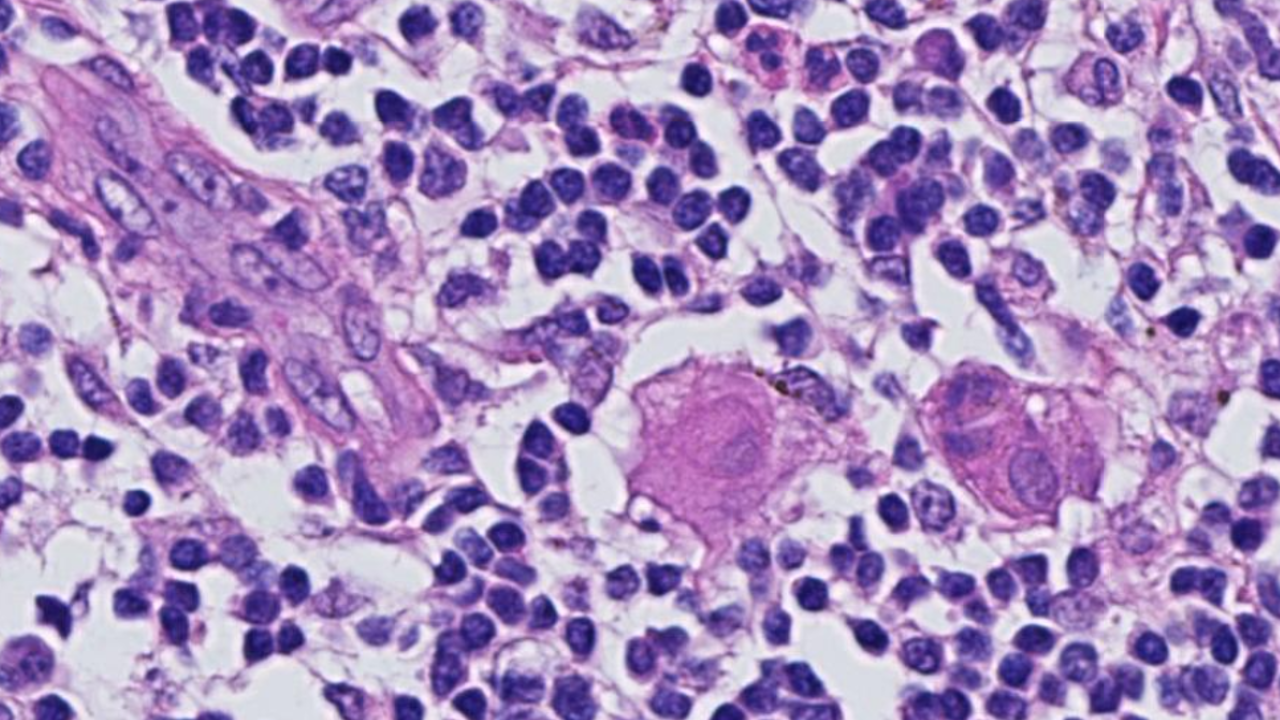News release
From:
Peter Mac researchers are part of a major international study that has found patients with early-stage triple-negative breast cancer (TNBC) and high levels of immune cells could be spared from intensive chemotherapy regimens.
TNBC is a breast cancer subtype that does not respond to drugs that target the estrogen receptor or the HER2 protein. It grows rapidly, is more likely to spread beyond the breast before diagnosis and is more likely to recur than other breast cancers.
The study, published recently in the Journal of American Medical Association (JAMA), highlights the abundance of immune cells, also known as tumour-infiltrating lymphocytes (TILs) in breast tissue is a prognostic biomarker in people with early-stage TNBC, even when chemotherapy is not administered.
TILs are naturally existing immune system cells that can move from the bloodstream into a tumour and can recognise and destroy cancer cells.
Peter Mac’s Dr Roberto Salgado, co-leader of the study and a member of the Loi Lab, said the findings will hopefully pave the way for future clinical trials to explore whether patients with a favourable prognosis (high TILs) can avoid chemotherapy.
"This meta-analysis confirms robustly the prognostic value of TILs that we have previously reported in TNBC patients treated with chemotherapy and expands it to patients treated without chemotherapy," he said.
“Future studies may allow the use of this biomarker along with standard clinicopathological factors to inform treatment decisions in TNBC patients. The results of this study could lead to a recommendation to include TILs in the pathology reports of early-stage TNBC worldwide, as it has the potential to inform clinicians and patients when they discuss treatment options.”
Dr Salgado and Professor Sherene Loi, clinician and scientist at Peter Mac, are the founders and co-chairs of the International Immuno-Oncology Biomarker Working Group.
The Group, in collaboration with Mayo Clinic and Gustave Roussy researchers, led 11 additional groups to collect data on 1,966 participants with early-stage TNBC who only underwent surgery with or without radiation therapy but did not receive chemotherapy and follow participants followed for a median of 18 years.
Dr Salgado and Professor Loi have pioneered the development of the TIL biomarker in breast cancer and have led a large body of evidence with regards to their clinical relevance and utility in the prognosis and treatment of early and late-stage breast cancer patients.
“While prior studies have focused on measuring TILs in people treated with chemotherapy, this is the largest study to comprehensively demonstrate that the presence of TILs influences the natural behavior of breast cancer in people who have surgery and/or radiation with no additional medical treatment," Professor Loi said.



 Australia; International; VIC
Australia; International; VIC


